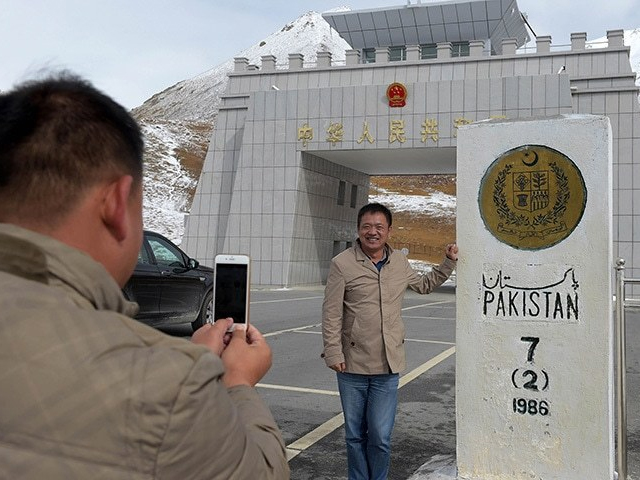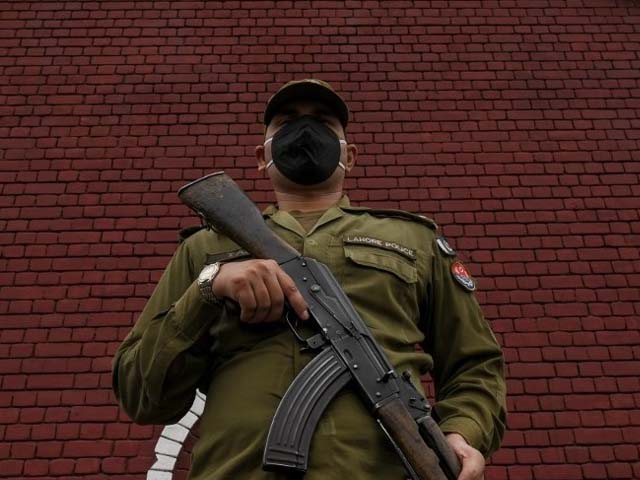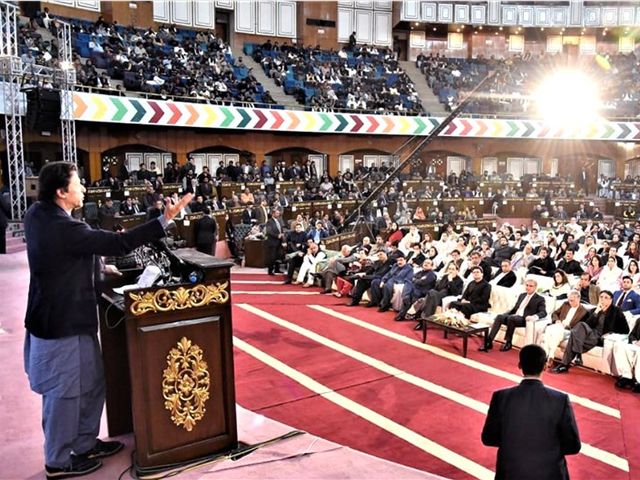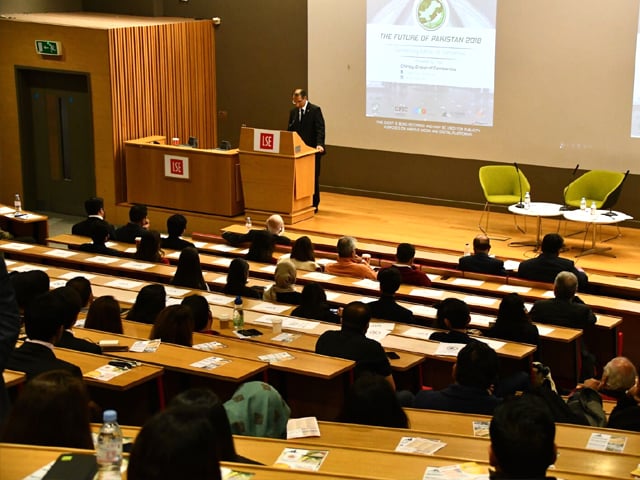
In this photograph taken on September 29, 2015, a Chinese national takes a photograph of his colleague at the Pak-China Khunjerab Pass, the world's highest paved border crossing at 4,600 metres above sea level. PHOTO: AFP
Roads and religion: How CPEC will pit Pakistan against itself
China has pushed Pakistan into a corner, where a conflict between religion and economic liberalisation is inevitable.
‘Exclusive: CPEC Master Plan Revealed’, read a headline this week in Pakistan’s daily newspaper, Dawn. Instantly, news outlets from across the world scrambled to analyse the text of the now-viral article and provided their own respective analyses of this said master plan. The two words themselves seem especially ominous, harkening to the devious plots hatched by cunning antagonists in the spy movies of old. The words, however, in many ways do justice to what was revealed.
The plan includes details of leasing large tracts of land to Chinese companies for ‘demonstration projects’ in agriculture with similar concessions in land granted for the construction of industrial zones, with their own set of tax breaks and logistical supports. Interesting also is the piloting of a ‘safe city’ program in Peshawar which uses a ‘full system of monitoring and surveillance’ to be replicated in all major cities of Pakistan. There are several other seemingly asymmetrical agreements in port control, trade and manufacturing. The article itself says it best,
“The plan envisages a deep and broad-based penetration of most sectors of Pakistan’s economy as well as its society by Chinese enterprises and culture. Its scope has no precedent in Pakistan’s history in terms of how far it opens up the domestic economy to participation by foreign enterprises.”
Then, perhaps, the scramble towards drawing first blood from the government for this unfathomable ‘surrender of sovereignty’ is justified. After all, ‘Another East India Company (EIC) is in the offing’. What is troubling is that several prominent theorists and politicians have made this analogy for impact rather than analysis; for if what they say is true, there is a re-imagining of Pakistan in the works that few could have predicted. It shall challenge Pakistan’s most fundamental core, the centrifuge around which its ideology, politics and culture revolve – religion.
One of the most interesting aspects of the plan is the construction of a fiber-optic system which will in part be used by the Chinese media to initiate in Pakistan ‘a dissemination of Chinese culture’. One has to look past typical arguments of cultural hegemony to understand what ‘Chinese culture’ means specifically for a Pakistani context.
This is the same country that has banned Indian entertainment, YouTube for posting blasphemous content, and has introduced an extensive Electronic Crimes Bill so vaguely phrased that any dissent on Islam in the previously safe space of social media may be seen as criminal. This principle is reinforced by non-state actions, such as the indiscriminate killing of religious minorities by terrorist factions and the alleged abduction of vocal opponents of authoritarianism by the intelligentsia. The Islamic Republic of Pakistan is no doubt vociferously Islamic, and its religious lobby will go to all extents to preserve the status quo.
It shall be interesting then to see how the media green lighted by the Chinese government – termed as ‘officially atheistic’ – will play to Pakistani audiences who are nothing if not sensitive of the unIslamic.
This doesn’t just apply to culture. The master plan also includes visa-free entry of Chinese nationals, and with them their own conceptions of the place of religion in society. This entry of Chinese citizens has the potential not just to shape demographics but also the cultural undertones of Pakistan’s current demographic. According to a Pew Study from 2008, more than 90% of Pakistanis consider religion to be very important. Meanwhile, a study by Gallup found China to be the least religious country in the world. It is difficult to imagine how people from both sides will mesh together with these diametrically opposed views on religion, in the religiously charged environment of Pakistan.
Another facet of the master plan is to ensure security for Chinese operations. This has somehow been related in the last line of the chapter on agriculture, and states that the government of China will,
“Strengthen the safety cooperation with key countries, regions and international organisations, jointly prevent and crack down on terrorist acts that endanger the safety of Chinese overseas enterprises and their staff.”
As ominous as that sounds on face value, it is even more problematic when one thinks of how difficult a position the Pakistan government will be put in, considering its nuanced (read: hypocritical) stance on ‘good’ and ‘bad’ terrorists. It is difficult to imagine how Pakistan’s government and intelligentsia can maneuver their way out of this quandary, especially considering that several infrastructure projects under the ambit of CPEC run through north and south-western territories where many of these terrorist factions have taken refuge. An example of this emerged just this week, when it came to light that three back-to-back terrorist attacks which claimed the lives of three dozen individuals in Pakistan’s south-west were targeted at CPEC operations in Balochistan.
This is a watershed moment for the current Pakistani administration. From one perspective, they have pushed Pakistan into a corner, where a bloody and violent conflict between religious ideology and economic liberalisation is inevitable. From another perspective, CPEC might finally arm the Pakistani government with the clout to reduce the influence of religious puritanicalism on Pakistan’s way of life.
The EIC brought with it misery and exploitation that no amount of reparations can forgive, but also technology and ideas that shape intellectual thought in the subcontinent to this day. Pakistan should be wary of China for several reasons, but it can use this economic partnership to bring about a cultural transformation that Pakistan has desperately needed since Ziaul Haq. Perhaps then, CPEC may become the ‘game-changer’ that Mr Nawaz Sharif envisioned, in more ways than one.
[poll id="751"]




COMMENTS (33)
Comments are moderated and generally will be posted if they are on-topic and not abusive.
For more information, please see our Comments FAQ